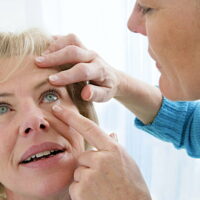
5 best foods to manage macular degeneration
Macular degeneration is a progressive health condition that affects a person’s eyes. It often results in a loss of central vision but does not cause permanent blindness. While the disorder can affect anyone, it is more common among those aged 50 or above. Nutrition plays a significant role in managing macular degeneration symptoms and preventing them from worsening. Patients can consider adding the following healthy foods to their meal plan. Zucchini People who expose their eyes to the sun’s UV and HEV rays are likely to suffer from retina damage and increase their chances of developing macular degeneration. Zucchini contains zeaxanthin and lutein, which help defend one’s retina against harmful UV rays. Zucchini also lowers the risk of retinal damage associated with HEV light and helps repair the eyes. As a result, many healthcare experts advise people to add this vegetable to their meal plans. Zucchini keeps the eyes healthy and helps those with macular degeneration. Whole grain oats Whole grains are loaded with minerals, vitamins, and antioxidants. Whole grain oats, in particular, provide vitamin E, iron, magnesium, vitamin B, and fiber. Eating them regularly helps prevent significant swings in blood sugar. This benefits people with macular degeneration because a dramatic increase in blood glucose can aggravate the condition’s symptoms and lead to vision impairment.
Read More. 














